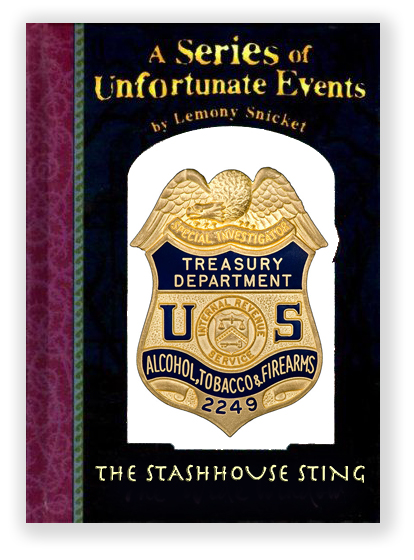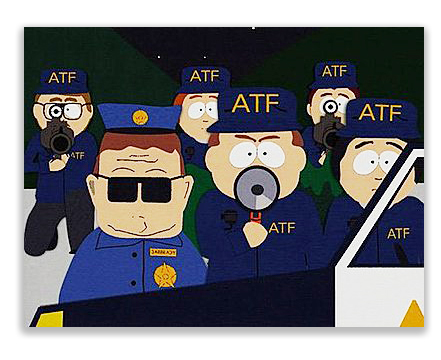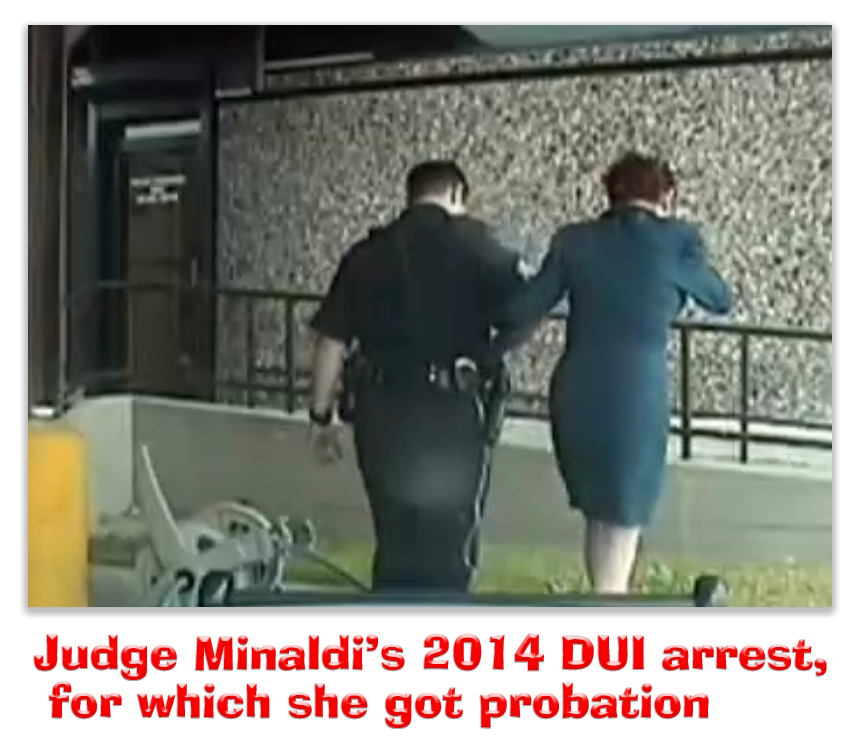We post news and comment on federal criminal justice issues, focused primarily on trial and post-conviction matters, legislative initiatives, and sentencing issues.

WASHINGTON WEEK
Last week was a busy one in Washington (at least, according to a Signal chat group I was accidentally invited to join):
Gun rights: The Dept of Justice last week proposed a rule change that will clear the way for letting it set up an office to restore gun rights to people who have been convicted of nonviolent crimes.
 The Bureau of Alcohol, Tobacco, Firearms and Explosives – an agency within the DOJ – has the authority to do so now, having been tasked with running the 18 USC § 925 program by the Secretary of the Treasury since 1965 passage of amendments to the Federal Firearms Act of 1938. At the time, ATF was an agency of the Dept of Treasury, and thus it was delegated authority of the Treasury Secretary to hand out gun forgiveness.
The Bureau of Alcohol, Tobacco, Firearms and Explosives – an agency within the DOJ – has the authority to do so now, having been tasked with running the 18 USC § 925 program by the Secretary of the Treasury since 1965 passage of amendments to the Federal Firearms Act of 1938. At the time, ATF was an agency of the Dept of Treasury, and thus it was delegated authority of the Treasury Secretary to hand out gun forgiveness.
The Homeland Security Act transferred the enforcement side of ATF to DOJ in 2002, and substituted the Attorney General for former § 925’s designation of the Secretary of the Treasury.
Back in 1992, Congress could not generate the votes to kill the rights restoration program but Senator Charles Schumer (then a congressman) was able to slip a provision into the ATF’s budget that prohibited the agency from spending any of its budget to operate the program. So while the program remains on the books, no government employee (assuming any are left, Elon) is permitted to spend a second of official time processing applications.
Last week’s proposed rule will withdraw the “effectively moribund” Attorney General’s delegation of authority to the ATF to run the program, letting DOJ handle the rights restoration in house. Presto. ATF may not be able to spend any of its budget on the § 925 program, but nothing will stop DOJ from doing so (unless the Democrats in Congress are able to slide another budget prohibition into the budget).
DOJ said the proposed rule “reflects an appropriate avenue to restore firearm rights to certain individuals who no longer warrant such disability based on a combination of the nature of their past criminal activity and their subsequent and current law-abiding behavior.”
DOJ will take comments on the proposed rule until June 18, 2025.
![]()
President Floats Imprisoning Americans in El Salvador: After several incidents of vandalism against Tesla property, President Donald Trump said on Truth Social that such acts would be treated as “domestic terrorism” and the perps could be sent to prison in El Salvador.
“I look forward to watching the sick terrorist thugs get 20-year jail sentences for what they are doing to Elon Musk and Tesla,” Trump posted on Truth Social last Friday. “Perhaps they could serve them in the prisons of El Salvador, which have become so recently famous for such lovely conditions!”
![]()
President Suggests Some Biden Clemencies Are Void: President Trump announced that President Biden’s preemptive pardons of people who served on the January 6th committee are of “no further force or effect” in a social media post just after midnight on Monday.
 Trump alleged that Biden used an autopen on a number of official documents, including presidential clemencies. Autopens are machines designed to automatically replicate a handwritten signature and have been used for years by presidents to sign large volumes of documents.
Trump alleged that Biden used an autopen on a number of official documents, including presidential clemencies. Autopens are machines designed to automatically replicate a handwritten signature and have been used for years by presidents to sign large volumes of documents.
Speaking to reporters onboard Air Force One a week ago, President Trump maintained the autopen signature made the clemencies void. However, he said “it’s not my decision” whether Biden’s pardons can be voided, and that it would ultimately be up to the courts.
The concern is that if even one Biden clemency can be voided by a later president, none of them is safe.
![]()
Fire the Judge: If I had a nickel for every time a prisoner has asked me how to get his or her judge taken off the case, I’d own my own Caribbean island by now.
Removing a judge is a hard thing to do, especially if the judge’s bias resulted from what she had read and heard in your own case. The U.S. Attorney will always fight removal, too, which is why the DOJ’s sudden push to remove federal judges for the sin of not being Donald Trump fans is so surprising.
Politico reports, “As tensions between the White House and the federal judiciary continue to rise, litigators at the Justice Department are increasingly seeking to have judges removed from cases where they have ruled against the administration.”
Last Friday, DOJ filed a motion to disqualify U.S. District Judge Beryl Howell (District of Columbia) from a lawsuit brought by big-law firm Perkins Coie challenging a Trump executive order that lawyers said was designed to destroy the firm in retaliation for work it had done on behalf of his political enemies. DOJ has accused her of “partiality against and animus toward” the President.
On Tuesday, Judge Howell entered a 21-page Memorandum Opinion and Order eviscerating the DOJ’s motion, noting that litigants’ right to a fair and impartial hearing “does not entitle any party—not even those with the power and prestige of the President of the United States or a federal agency—to demand adherence to their own version of the facts and preferred legal outcome.”
Earlier last week, a separate DOJ attorney asked the U.S. Court of Appeals for the D.C. Circuit, calling for U.S. District Judge James Boasberg to be removed from case regarding the deportation of alleged Venezuelan gang members. The letter took issue with what it called Boasberg’s “highly unusual and improper procedures.”
 After Judge Boasberg was selected at random this week to hear a lawsuit against the Administration for the Signal chat debacle, President Trump went ballistic on his Truth Social account last night: “How disgraceful is it that ‘Judge’ James Boasberg has just been given a fourth ‘Trump Case,’ something which is, statistically, IMPOSSIBLE,” Trump wrote.
After Judge Boasberg was selected at random this week to hear a lawsuit against the Administration for the Signal chat debacle, President Trump went ballistic on his Truth Social account last night: “How disgraceful is it that ‘Judge’ James Boasberg has just been given a fourth ‘Trump Case,’ something which is, statistically, IMPOSSIBLE,” Trump wrote.
Newsweek said this morning that “Trump’s statements continue his long trend of claiming that the legal system is rigged against him, which he used as a platform throughout the 2024 presidential campaign.”
DOJ, Delegation of Authority, 90 FR 13080 (March 20, 2025)
The Hill, DOJ creating path for people with criminal convictions to again own guns (March 20, 2025)
Fortune, After the Justice Department charged three people with vandalizing Tesla property, the president floated sending the accused to prisons in El Salvador (March 21, 2025)
Politico, Trump floats sending Americans to foreign prisons. Civil rights groups say that would be illegal. (March 21, 2025)
Newsweek, Donald Trump Sends Warning To Enemies As He Says Biden Pardons Void (March 17, 2025)
Politico, DOJ moves to boot federal judge from Perkins Coie case (March 21, 2025)
New York Times, Judge Assails White House Efforts to Kick Her Off Perkins Coie Case (March 26, 2025)
Newsweek, Donald Trump Rages at Judge Boasberg Getting Signal Case: ‘Disgraceful’ (March 27, 2025)
– Thomas L. Root



 We have reported ad nauseam about the battle over whether stash house stings – where federal agents convince unwitting defendants to rob nonexistent stash houses of nonexistent drugs, all so they can arrest them – are designed to target minorities.
We have reported ad nauseam about the battle over whether stash house stings – where federal agents convince unwitting defendants to rob nonexistent stash houses of nonexistent drugs, all so they can arrest them – are designed to target minorities.




